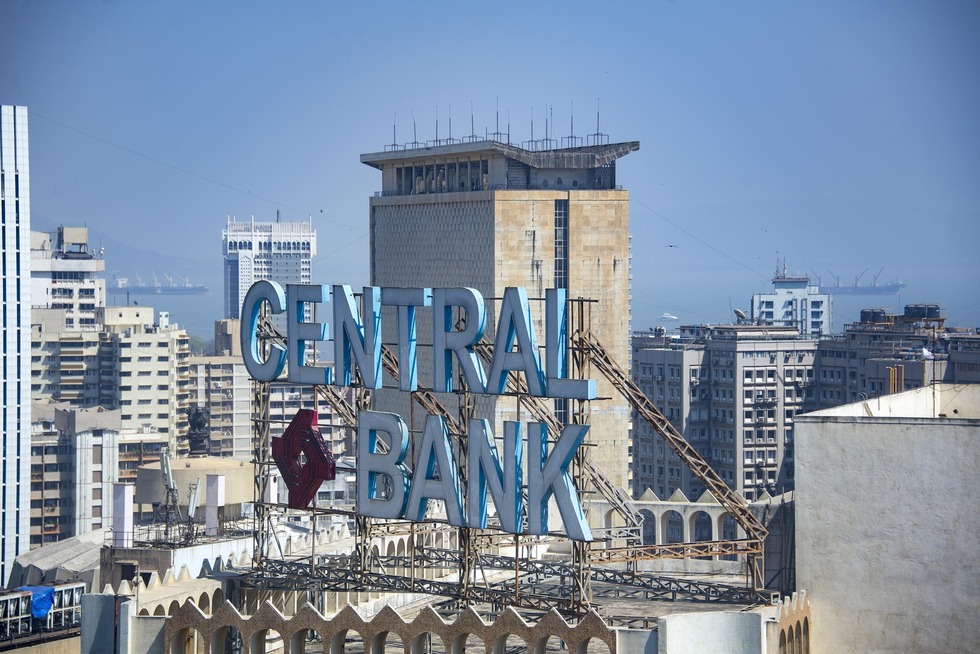Best international banks for expats 2026: Low fees, easy setup, global ATM access

Ever feel like your bank didn't get the memo that you moved overseas? Choosing from the best banks for expats can mean the difference between smooth transfers and frustrating fees.
This guide is designed for American expats who want a reliable checking account, low costs, and real access while living abroad.
Key takeaways:
- Traditional banks like HSBC and Citibank offer global ATM networks and multi-currency accounts, but features vary by region
- Online options such as Wise and Charles Schwab provide fee rebates and mid-market rates without branch visits
- US expats must report foreign accounts over $10,000 to FinCEN (FBAR) and potentially the IRS (Form 8938)
- Many banks require US addresses and phone numbers due to FATCA compliance rules
What to look for when choosing a bank while living abroad?
When selecting a banking partner as a US expat, it's crucial to look beyond just convenience. The right expat bank account should support your international lifestyle with features that reduce fees, increase flexibility, and offer access from anywhere in the world.
US-person friction matters. Due to FATCA reporting requirements, some foreign banks reject US citizens or demand extra paperwork. Even US banks may close accounts if you can't maintain a stateside address or phone number.
Global reach and presence: Banks with physical locations in multiple countries make managing money across borders more seamless. Institutions like HSBC and Citibank offer global ATM access and in-person support.
Multi-currency accounts: Holding multiple currencies helps you minimize conversion costs and stay financially agile, especially if you're earning in one currency and spending in another.
Low international transfer fees: Look for accounts with low or reimbursed foreign transaction charges. Online options like Wise or Schwab reduce the friction of moving money globally.
Excellent online and mobile banking: A strong digital platform is essential when you're not near a branch. Top banks provide secure apps so you can access funds and pay bills from anywhere.
English-speaking customer support: Prioritize banks offering 24/7 English support, particularly when navigating complex issues overseas.
Flexibility for cross-border living: Choose banks that allow US mailing addresses, support direct deposits from abroad, and offer travel insurance.
International bank accounts for expats in 2026
The right international bank for expats can make or break your life abroad, slashing fees, smoothing currency swings, and keeping you on the IRS's good side.
How we picked these banks: We evaluated institutions based on global ATM access, multi-currency support, fee structures, digital capabilities, and proven records serving US citizens abroad. This list targets Americans who need both stateside connections (for Social Security, IRS refunds) and overseas flexibility.
To help you separate substance from sizzle, we've profiled industry leaders below, spotlighting history, 2026-ready features, and the nuts and bolts of opening an account. Along the way, we'll flag hidden costs of foreign transaction fees and show how the best options balance access with compliance.
HSBC Expat
Founded in Hong Kong in 1865, HSBC now maintains branches in more than 60 countries.
Best for: Expats with significant savings who value in-person banking across Asia, Europe, and the Middle East.
In 2026, the HSBC Premier Expat package offers fee-free international transfers within the HSBC network and multicurrency accounts. Note that while HSBC doesn't charge its own ATM fees on Premier accounts, local ATM operators may still apply charges. Premier benefits may extend to family members, though program details vary by market.
Opening requires a KYC video call plus proof of a valid US address. Minimum balance requirements vary depending on tier and region. View HSBC Expat tariff of charges.
Watch-outs: High minimum balances, limited US ACH capabilities, strict eligibility for Premier tiers.
Citibank International Personal Banking
Citibank has served travelers since 1812 and now offers Citi International Personal Account Package for expats.
Best for: High-net-worth expats who travel frequently and need relationship manager support.
Features may include ATM fee rebates and foreign transaction fee waivers, though details vary by country and tier. CitiGold typically requires high combined balances and provides multilingual relationship managers in select markets. Digital onboarding accepts US passport, overseas visa, and stateside mailing address, but requirements differ by region. Minimum balance requirements vary by tier and location.
Watch-outs: High balance requirements for premium tiers, inconsistent international product availability.
Standard Chartered International Banking
Tracing roots to financing Asian trade in the 1850s, Standard Chartered operates across Africa, Asia, and the Middle East.
Best for: Expats living or doing business in Asia, Africa, or the Gulf states.
Where it's strongest: Singapore, Hong Kong, UAE, Kenya, India.
It's a 2026 platform bundles multicurrency accounts, wealth tools, and a mobile app with live FX alerts. Opening requires passport and residency documents through the bank's portal. Processing times vary by market. Typical requirements include proof of overseas address and income. Minimum opening deposits vary depending on account type and region. Check market-specific International Banking page.
Watch-outs: Limited presence in the Americas and Europe, higher fees for smaller balances.
Santander International
Santander started in 1857 and now spans Europe to Latin America, fitting digital nomads toggling between Madrid, Mexico City, and Miami.
Best for: Expats with ties to Spain, Portugal, or Latin America.
Current accounts (product names change periodically) may include fee-free euro-to-dollar transfers inside the Santander network, plus travel insurance on higher tiers. US citizens can apply remotely with a passport, proof of address, and video-ID check. View Santander International accounts.
Who should skip: If you need robust US ACH features or primary banking in Asia/Middle East.
Watch-outs: Limited global footprint outside Europe and Latin America, fewer multicurrency options.
Bonus: best international banks with strongest reputation
Charles Schwab: Unlimited global ATM rebates and zero foreign transaction fees headline Investor Checking. Requires parallel brokerage account but no funding. Perfect for frequent travelers.
Fidelity Cash Management: Fidelity does not charge foreign transaction fees when you use your debit card abroad, though merchants may offer dynamic currency conversion at unfavorable rates. Free worldwide ATM withdrawals pair with seamless brokerage access.
Wise: Fintech platform lets you hold 50+ currencies at mid-market rates. Digital onboarding takes minutes. Ideal for freelancers juggling multiple currencies.
Alliant Credit Union: Competitive APY on checking, rebates up to $20 monthly in ATM fees. Requires modest share deposit plus US address. Great for low-maintenance US accounts.
Foreign financial accounts held outside the US may trigger FBAR reporting if the aggregate balance exceeds $10,000 at any point during the year. You may also need to file Form 8938 if your foreign assets meet higher thresholds.
To stay compliant:
- Keep monthly statements for all foreign accounts in one cloud folder
- Track the maximum aggregate balance across all foreign accounts
- On December 31, request an FX balance snapshot from each foreign bank
- Use the IRS official yearly average exchange rates for USD conversion
Top options beyond checking accounts overseas
A traditional checking account remains essential for Social Security deposits and IRS refunds, yet fees and FX spreads can balloon. The tools below slash costs, widen access, and generate records for tax season.
Which tool should I choose?
- Need local currency for rent? Open a domestic local bank account
- Want to cap spending abroad? Use a prepaid debit card
- Juggling multiple currencies? Go with Wise or Revolut
- Occasional travel from US base? Try a travel money card
- Online shopping only? E-wallets work, but watch conversion spreads
Domestic local bank account: Held in host currency, offers same-day transfers and in-branch service. Opening demands proof of residency. File FBAR if aggregate foreign accounts exceed $10,000 at any time.
Prepaid debit cards: Load dollars and cap spending. Many limit foreign ATM fees to 1-2%. Reporting depends on product structure. Save monthly statements.
Multi-currency cards (Wise, Revolut): Hold 50+ currencies, convert at mid-market rates under 0.5%. Withdraw cash fee-free up to monthly limits (vary by plan/country). Export CSV ledgers for tax worksheets.
E-wallets: PayPal, Apple Pay, Google Pay deliver instant P2P but can carry 2-3% conversion spreads. Reporting depends on product structure. Linked foreign banks still reportable.
Travel money cards: Preload one currency before trips to dodge FX swings. Ideal for short assignments. Keep load receipts. Float counts toward FBAR aggregate if account is in your name.
| Tool | Typical FX fee | Free ATM allowance | Tax note | Best for |
|---|---|---|---|---|
| Local bank | 0% (native currency) | Domestic only | File FBAR if aggregate foreign accounts exceed $10,000 at any time (FinCEN/IRS) | Long-term residents needing local rails |
| Prepaid card | 1-2% | Varies by plan/country | Depends on structure; save statements | Budget-conscious travelers |
| Wise/Revolut | 0-0.5% | Varies by plan/country | CSV files aid credit calculations | Frequent currency converters |
| E-wallet | 2-3% | N/A | Depends on structure; linked foreign accounts reportable | Online shopping and P2P |
| Travel card | Locked at load | Limited | Float counts toward FBAR aggregate if in your name | Short trips with fixed budgets |
NOTE! US citizens abroad must submit the 2025 federal return by June 15, 2026 (automatic two-month extension). Tax owed is still due April 15, 2026, to avoid interest. File IRS Form 4868 to move the filing deadline to October 15, 2026 (payment still due April 15).
Quick timeline:
- April 15, 2026: Payment deadline
- June 15, 2026: Automatic filing extension for expats abroad
- October 15, 2026: Extended filing deadline (with Form 4868)
Documents you'll usually need to open an account abroad
Before you compare banks, gather paperwork. Most providers follow strict identity checks, and missing one document can slow approval. Use this table to see what's commonly required and what alternatives may work.
| Document | Often required? | Where it’s requested | Tips / alternatives |
|---|---|---|---|
| Passport | Yes | Almost everywhere (banks, “expat” divisions, fintechs) | Ensure it’s valid and unexpired. Some banks also ask for a second ID (driver’s license/national ID). |
| Proof of address (utility bill, lease, bank statement) | Usually | Most local banks; some international banks depending on country | If you’re newly arrived, ask if they accept an employer letter, temporary registration, or hotel/short-term lease. Some banks accept a foreign address, others require a local one. |
| Visa / residence permit (or local registration) | Often (varies) | Common in countries with stricter onboarding rules; local branches | If you don’t have it yet, ask about a non-resident account or whether onboarding can start now and finish after you receive your permit/ID card. |
| US SSN / ITIN (sometimes) | Sometimes (for US persons) | Banks/fintechs that onboard US citizens/GC holders; needed for FATCA/US-person identification | Be ready for FATCA self-certification questions. If you don’t have the number handy, bring other US tax docs and expect follow-up. |
| Proof of income / source of funds (pay stub, contract, tax return) | Sometimes to often | More common for premium tiers, large deposits, or stricter compliance checks | Employees: pay stubs/contract. Self-employed: invoices + recent tax return or financial statements. |
| Local phone number + email (for verification) | Often | Many banks and fintechs that use OTP/app-based verification | If you don’t have a local SIM yet, ask if they allow international numbers, in-branch verification, or a temporary workaround until you get local service. Some apps won’t work without SMS/2FA. |
Smart moves start with the right bank
Choosing the right expat banking solution impacts your fees, access, and tax compliance as a US expat. The best banks for expats offer global reach, low costs, and features tailored to mobile lives.
Banking choice drives compliance workflow: Cleaner statements and easier FX tracking simplify FBAR and Form 8938 recordkeeping. Pick tools that export transaction histories and provide year-end balance snapshots.
Need help aligning your finances with IRS rules? Our experts can guide you every step of the way.

FAQs on the best international banks for US expats
Yes, you can keep your US account, though some banks may require a US address and working phone number.
No, it's completely legal, but foreign accounts must be reported to the IRS if they exceed certain thresholds.
Look for low fees, international access, and support for global transfers that fit your expat lifestyle.
These fees can add up quickly, especially with frequent card use abroad, so choose accounts that offer rebates or low rates.
Many international banks still require a local branch visit or residency documentation, though some online options are more flexible.
Yes, an online bank with global ATM access and multi-currency support can be ideal if you don't need in-person service.
Most banks require proof of local address due to anti-money-laundering rules. Alternatives include notarized landlord letter, hotel booking for your first month, or utility setup confirmation. Digital banks like Wise and Revolut have more flexible requirements.
Some foreign banks avoid US clients because FATCA reporting adds compliance costs. Banks in Switzerland, France, and parts of Asia are particularly cautious. If rejected, try US-based international banks (Citibank, HSBC Expat) or online options (Schwab, Fidelity).
The FBAR deadline is April 15 each year, with automatic extension to October 15 (no request needed). If aggregate foreign accounts exceeded $10,000 at any point during the year, file FinCEN Form 114 electronically.

Stay IRS-compliant with your business abroad – we’re ready to help


